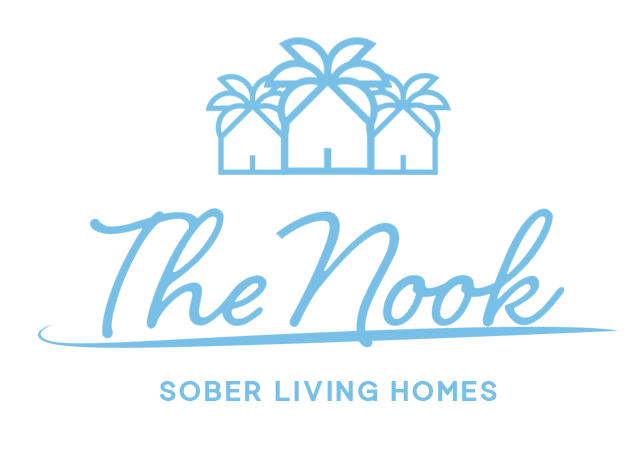Addiction is the inability to stop using a substance or engaging in a behavior even though it is causing psychological and physical harm.
Codependency is a toxic relationship trait that can cause serious problems within a relationship and worsen substance abuse issues. Learning what is codependency in addiction and how to find treatment can be vital to a successful recovery.
Contact the Nook Sober Living today if you want information on how to treat codependency. The Nook Sober Living is a sober living home in Los Angeles.
What Is Codependency?
Codependency is a trait of imbalanced relationships, where one person enables another’s self-destructive behavior. This can include behaviors such as addiction, poor mental health, immaturity, irresponsibility, or underachievement.
Definitions of codependency vary but typically include high self-sacrifice, a focus on others’ needs, suppression of one’s own emotions, and attempts to control or fix other people’s problems.
People who self-identify as codependent exhibit low self-esteem, but it is unclear whether this is a cause or an effect of characteristics associated with codependency.
Codependency is not limited to married, partnered, or romantic relationships, as co-workers, friends, and family members can be codependent.
Codependency in Addiction
Codependency can also be described as an addiction to another person, rather than a substance. When substance abuse develops into addiction, it can ruin your interpersonal relationship with your close ones. It is very difficult for anyone suffering from addiction to maintain healthy relationships. Therefore codependency and addiction often go along together.
Codependent relationships are very harmful to both individuals. It is more complex when the loved one of the codependents engages in substance abuse such as drugs, alcohol, or other substances. The codependent person suddenly develops the need to please and take care of the addict, which may enable the addiction rather than helping their loved one overcome it. In this situation, both addiction and codependency must be addressed in treatment.
Recovering addicts often find that codependency is one of their underlying issues. Substance abuse and dependency can cause guilt and shame, which then leads to codependency.
Being in a codependent relationship can jeopardize your recovery if you’re suffering from addiction. Although your partner is well-meaning and loving, their subconscious need for you to continue your addiction may make it impossible for you to overcome it.
It is very hard to walk away from a codependent relationship when you’re suffering from addiction because your codependent partner would make you feel safe, and loved and make you feel progressive about yourself even when you’re not in the right shape.
How Do You Know You’re Codependent?
Codependency and addiction go hand in hand. If you’re in a relationship with an addict, there’s a high chance you’re codependent. Codependency, which often manifests as an addiction to people, is as serious an addiction as any. It is often unrecognized.
Codependent individuals visit the health care system with stress-related or depressive symptoms, which can mask the underlying causes; thus, it is possible that they will only receive symptomatic treatment.
Signs of Codependency and Addiction
- Lack of boundaries
- Low self-esteem
- Dependency
- Difficult adjusting to change
- Chronic anger
- Difficulty in expressing feelings, wants, or needs
- Difficulties making decisions
- Doing anything to please and satisfy their enabler no matter what the expense to themselves.
How to Treat Codependency
Healing from codependency means rebalancing oneself. Instead of focusing so much on what others need, you must consider your own needs and make them a priority. This doesn’t mean that you should never consider other people’s needs or take care of them; it just means that your needs are as important as other people’s and that if you don’t take care of yourself, you’ll end up depleted, resentful, and unfulfilled.
- Be Assertive: Healing from codependency includes knowing what you need and asking for it. You can’t continue to feel and act like victims or martyrs. You must learn to communicate assertively, stand up for yourself, set boundaries to protect yourself from being mistreated, and create relationships where you give and receive.
- Be Kind To Yourself: You should offer yourself kindness, acceptance, and support, treating yourself as you would a dear friend. Self-compassion is another way to value and care for yourself—it’s been shown to increase resiliency and motivation and decrease stress.
- Understand Recovery Takes Time: Recovery is a process that can be overwhelming when you think about all the changes you want to make. But the good news is that recovery isn’t all or nothing. You can benefit from making even just a few small changes. Take it slowly, and with consistent practice, support, and learning new skills, you will gradually feel more confident and know you’re on the path to recovering from codependency.
- Get Professional Help: Codependency is more effectively treated by professional therapy; a therapist can help treat codependent behaviors and develop healthier relationships, teaching you to be at peace without controlling outcomes. Therapy would help you understand that you’re not selfish for choosing to take care of yourself and would help you regain self-love.
Getting Help From the Nook
Are you struggling with codependency and addiction, and you want to break out of it? The Nook is a clinically based treatment center designed with individualized treatment foremost in mind.
Substance addiction, mental illness, and behavioral health disorders are often as unique as the individuals they affect. Here, you can find sober living practices that can help you recover from codependency and addiction. Contact the Nook Sober Living for more information on our sober living home for men.

